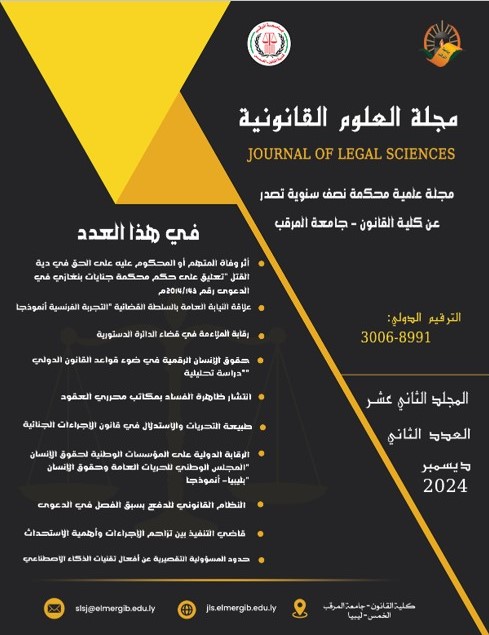The Impact of the Death of the Accused or Convict on the Right to Diyya
“Commentary on the Judgment of the Benghazi Criminal Court in Case No. 143/2014”
DOI:
https://doi.org/10.65137/jls.v12i02.108Keywords:
دية, وفاة المتهم , وفاة المحكوم عليه, قانون القصاص والدية الليبيAbstract
A person may fall victim to premeditated murder or manslaughter, and then the accused dies before being convicted by a final judgment, or after it and before the execution of the judgment issued with qisas and diyya, which raises the question about the fate of the right of the murdered’s awliya al-dam to diyya in Libyan law! Is it terminated by the death of the accused or the convict, or does their death not affect that right? The Benghazi Criminal Court addressed the issue and concluded that the right of the murdered’s awliya al-dam to diyya was forfeited due to the fact the homicide case was closed on the death of the accused. And, they have the right to diyya when the death occurs after the conviction. The author tries to determine the extent to which the court decision is consistent with the special nature of diyya, and the accuracy of the court’s reasoning.
Downloads
Published
How to Cite
Issue
Section
License
Copyright (c) 2024 مجلة العلوم الشرعية والقانونية

This work is licensed under a Creative Commons Attribution-NonCommercial 4.0 International License.















